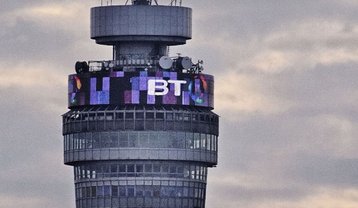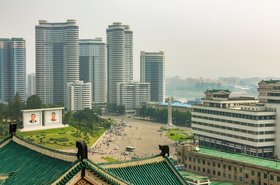BT staff have voted for the their first national strike in 35 years.
The strike will include both engineers and call center staff, with the Communication Workers Union (CWU) representing around 40,000 employees. BT has a staff of around 100,000, but only 58,000 are classed as front line.
The union has given BT senior management a week to return to the negotiating table with a “significantly improved offer." A strike can only be called 14 days after BT is served notice.
CWU said that a £1,500 ($1,800) pay rise for 58,000 staff in April was an effective pay cut due to inflation of 9.1 percent (the Retail Price Index puts it at 11 percent) and tax increases. Dave Ward, general secretary at the CWU, told the Guardian that senior management had cultivated a "real culture of fear."
Union organizers at different divisions within BT held votes on the strike. At BT subsidiary Openreach, which helps connect virtually all the homes and businesses in the United Kingdom to the national broadband and telephone network, there was a 75 percent turnout among 28,425 members - with 95.8 percent voting for the tike.
At BT's main division, which includes 10,000 call center staff, turnout was 58.2 percent with 91.5 percent voting in favor. Should they strike, this will be the first UK-wide call center strike in British history.
"Call center workers are some of the most isolated workforces in this country. They are notoriously difficult to organize, and the unprecedented vote they have taken today demonstrates the anger so many people feel in this country today," Ward said at a press conference.
Over at EE, the mobile operator that BT acquired back in 2015 for £12.5bn, the vote was invalid because turnout was below the required 50 percent threshold - missing the mark by just eight members. Of the 2,000 that did vote, 95.8 percent did so in favor of the industrial action.
“There could be a very significant impact [if a strike goes ahead], you can’t underplay the significance,” Ward told the Guardian. “These are the workers who combined control the maintenance and rollout of the UK’s broadband infrastructure. There are also key contracts with government agencies, security agencies – they manage those contracts. It will have an impact. The objective is to reach a fair settlement with the company.”
Strikes may also further slow the removal of Huawei equipment from BT's infrastructure. Even without such industrial action, the company reportedly asked the government for more time to get rid of the Chinese equipment, blaming Covid-19 lockdowns. The government has given operators a deadline of 28 January 2023 to get Huawei out of their network cores, or face fines of up to £100,000 ($122,000) per day.
BT boss Philip Jansen was given a 32 percent pay rise last year, and earns £3.5 million ($4.2m) including bonuses and share awards. The company, which made £2 billion ($2.4bn) in profit last year and gave out £700m ($843m) in dividends, said that it could not afford to increase staff wages.
The threats of strikes come at a time of increasing industrial action in the UK, with workers buffeted by the global economic slowdown and rising inflation, as well as the local issue of Brexit and more than a decade of government austerity.
Inflation in the country hit a 40-year high in May, while the UK is expected to have the slowest economic growth of the G7. Thinktank OECD said that the UK will be the worst hit major economy from the Ukraine war, downgrading its predictions for the UK's growth. The country’s economy unexpectedly shrank by 0.3 percent in April.
In June, more than 40,000 Network Rail staff across 13 train operators went on strike, while bus drivers in parts of the country have been on strike for a month. Staff at airlines EasyJet, Ryanair, and British Airways have gone on strike as workers said they were unable to pay rent, causing chaos at airports. Criminal barristers effectively shut down UK courts after going on strike for two days, and warned that they planned a week-long strike later this month.
Britain’s teaching union said that it planned to ballot members this November after 12 years of relative pay cuts, saying that teachers faced an “existential crisis” as the cost of living crisis made the job untenable. A separate teacher's union said that it planned an earlier ballot. The unions claim that pay is down 20 percent on 2010.
Workers at the National Health Service are considering a potential strike, as well as a mass exodus, as nurses and other key workers cannot pay their bills, with the government offering a three percent wage rise limit. A poll by Ipsos found that half of Britons supported the strike, with 30 percent against it.







